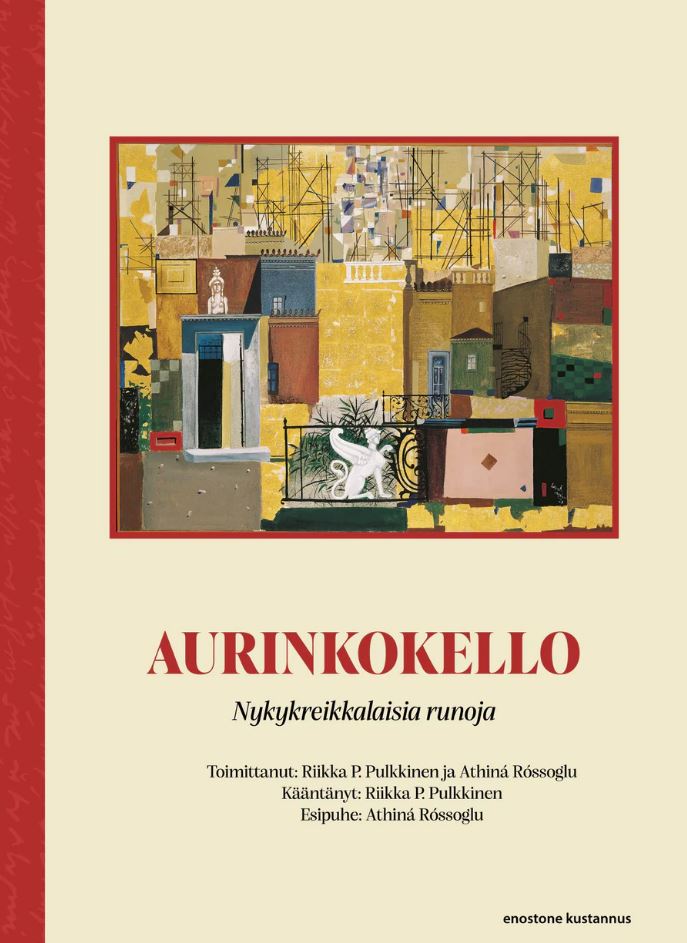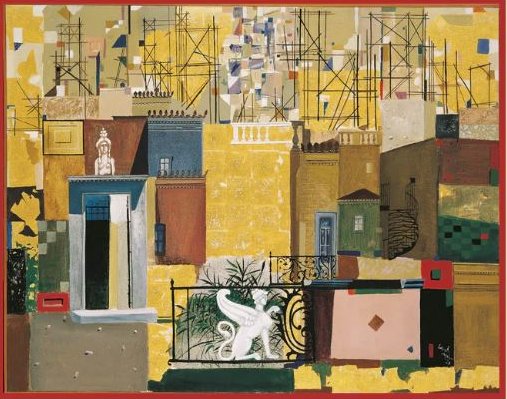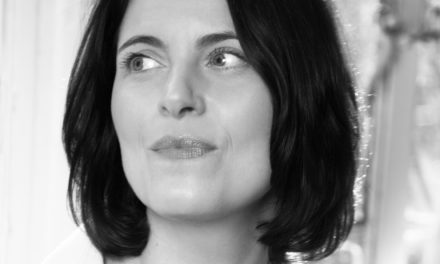Literature, and especially poetry, can act as one of the most sensitive indicators of a country’s idiosyncrasy, its social, cultural, linguistic and aesthetic character. The Finnish poetry anthology Aurinkokello [Sundial in English] attempts precisely to map the experiences of people living and writing poetry in the 21st century. It aims to present Greece’s diverse poetic production, its multiple poetic trends – both in terms of language, themes and style – which, however, share a common culture and a common effort: to orient themselves through poetry and make their presence in the public space both distinct and recognizable. Within this framework, the book is not structured by poet, but is divided according to the themes of the poems, aiming to incorporate both the political and the personal, the collective and the most introspective.
The Greek poets of the 21st century attempt to find “poetry in language”. Their poetic language is direct, with a new orality sewn to the era that contains it. Everything is suitable to become poetry, as it is “sanctified” through innovative poetic uses. The poets of the 21st century do not hesitate to experiment with different poetic forms in an attempt to re-present the world through a different perspective. It is essentially about creating a new speech with its own grammatical, syntactic and verbal traits. In this context, translating contemporary Greek poetry into a foreign language, and especially Finnish, with its own linguistic particularities, is more than challenging.

As the anthology’s editor and translator Riikka P. Pulkkinen explains, “Initially, I must confess that I wasn’t able to translate all the poems I wanted. Translators, particularly those of poetry, often face the challenge of capturing the essence of a poem that sounds incredible in its original language but fails to convey the same sentiments in another language. In such instances, the only option is to write a new poem that might differ significantly from the original. On the other hand, translating some poems can be pleasantly surprising. In Finnish, some words might sound better together, adding a new aspect to the poem, even though they may have had a secondary role in the original. Additionally, as a translator, it’s essential to grasp every hidden message between the lines in the poem. As a reader, it’s possible to overlook lines that don’t seem to lead anywhere, but as a translator, one must analyze every detail. Consequently, many of the poems I had planned to include initially ended up being excluded during the translation process”.
32 Greek poets are included in the anthology which delves into issues such as history, politics, society, urban life and interpersonal communication, ancient myths transcribed in a modern context, love and the most inner individual quests. A major challenge was for their poems to move beyond national borders and reach the minds and hearts of Finnish readers. “Before the anthology’s publication, I was uncertain about what to expect. While I felt that Finnish readers might be intrigued by the unfamiliarity of contemporary Greek poetry, I couldn’t be sure. Fortunately, the book was printed in time for the Greek Poetry Night, a part of Turku’s Poetry Week festival, and we gathered at the local theater to celebrate its launch. I was amazed at the audience’s enthusiasm and their profound respect for poetry,” Pulkkinen notes.
Since its initial publication, the book has been reprinted twice. The first reprint was necessary because the initial launch had fewer copies, and the second was required when the official print sold out. “Several Finnish poets have contacted me after reading the anthology, and their messages have revealed that they have meticulously explored the nuances of the poems, demonstrating a profound understanding and appreciation for the original work. As a translator, this has brought me immense joy and satisfaction. Translation is a vital means of bridging the gap between cultures, especially when it comes to smaller languages. Thanks to translation, Finnish readers have become familiar with the views and attitudes of some of the most prominent young poets on life and society. In summary, the anthology has been a success,” Pulkkinen concludes.
A.R.
Read also: Reading Greece: Riikka Pulkkinen on Greek Literature in Finland
TAGS: LITERATURE & BOOKS | READING GREECE















